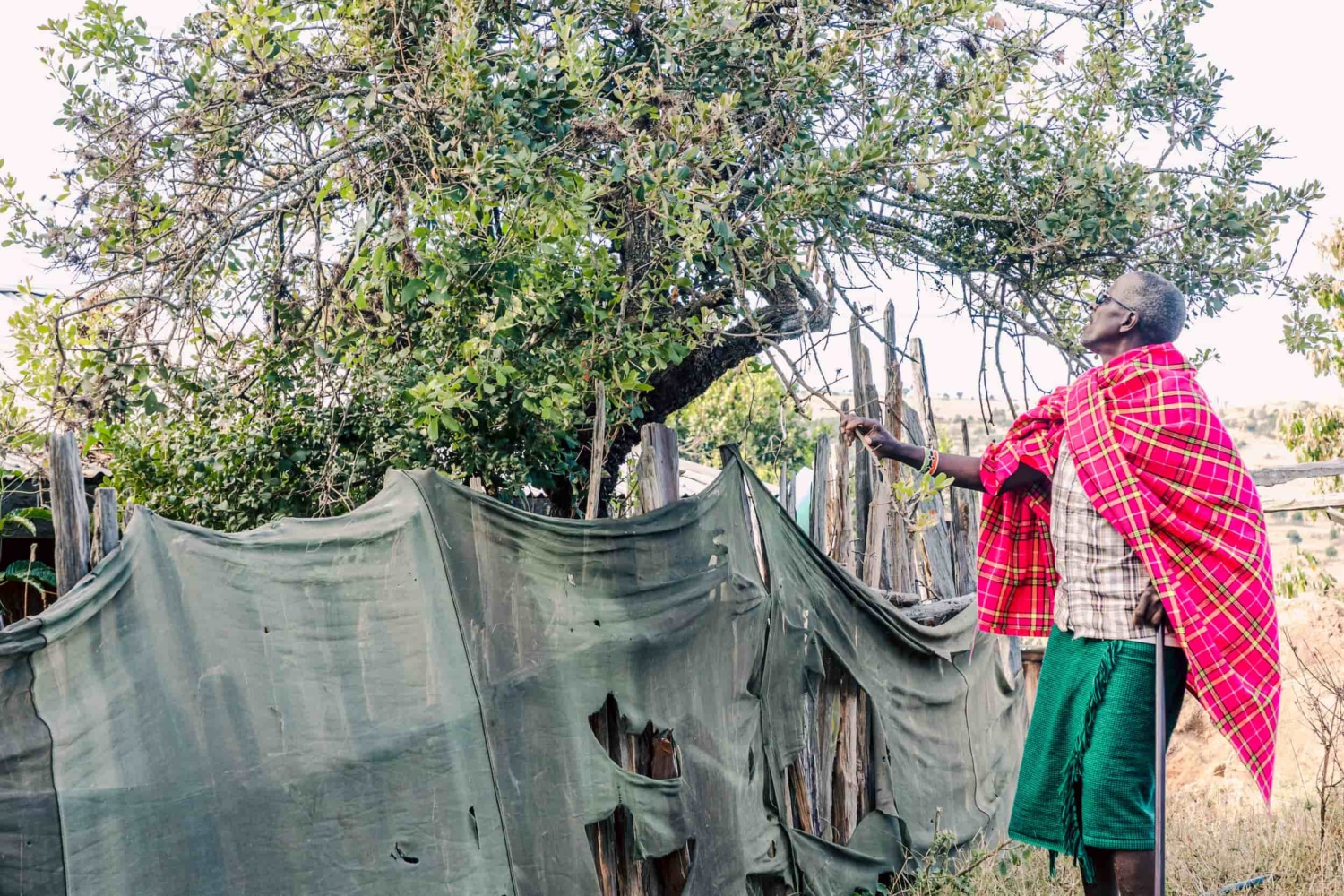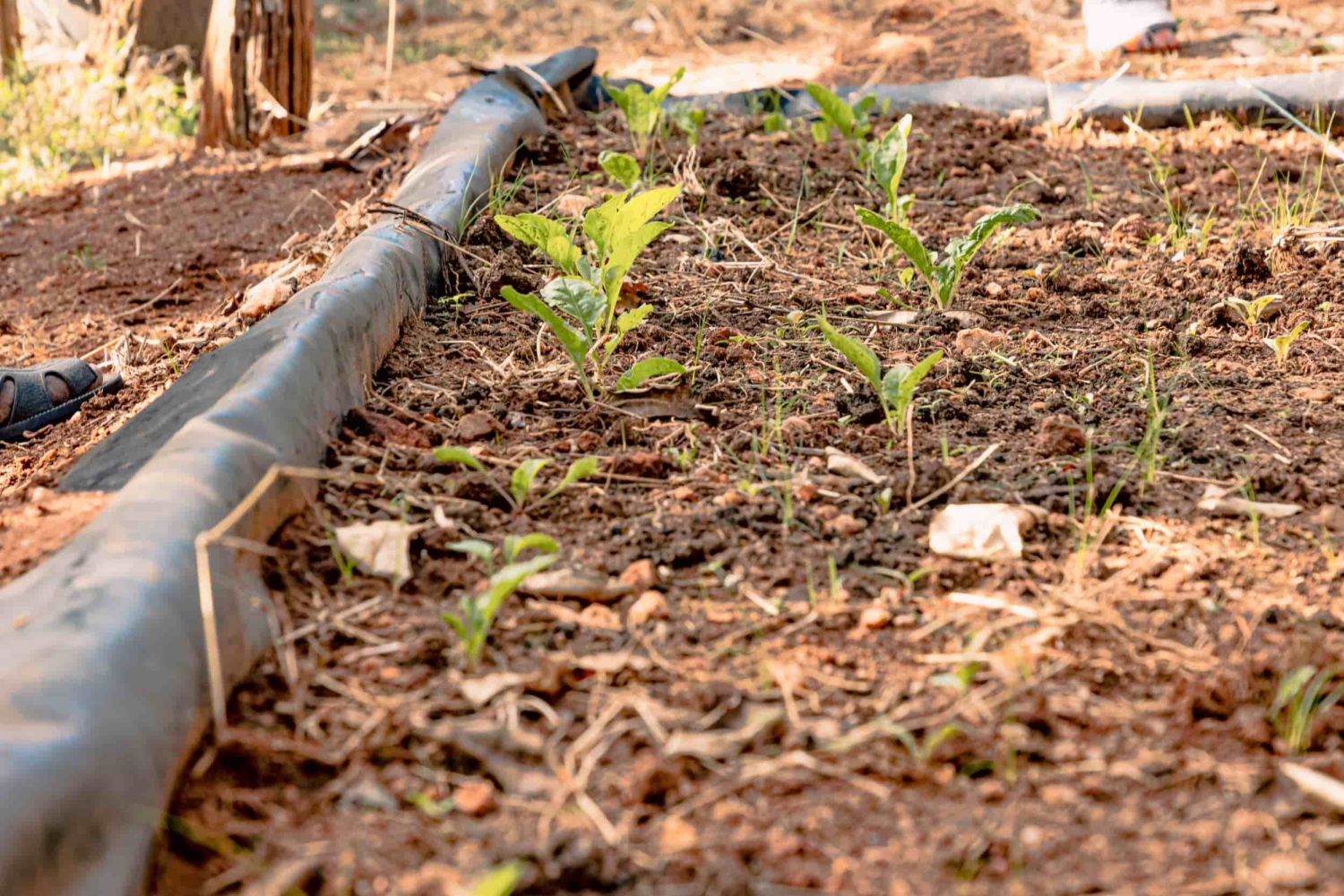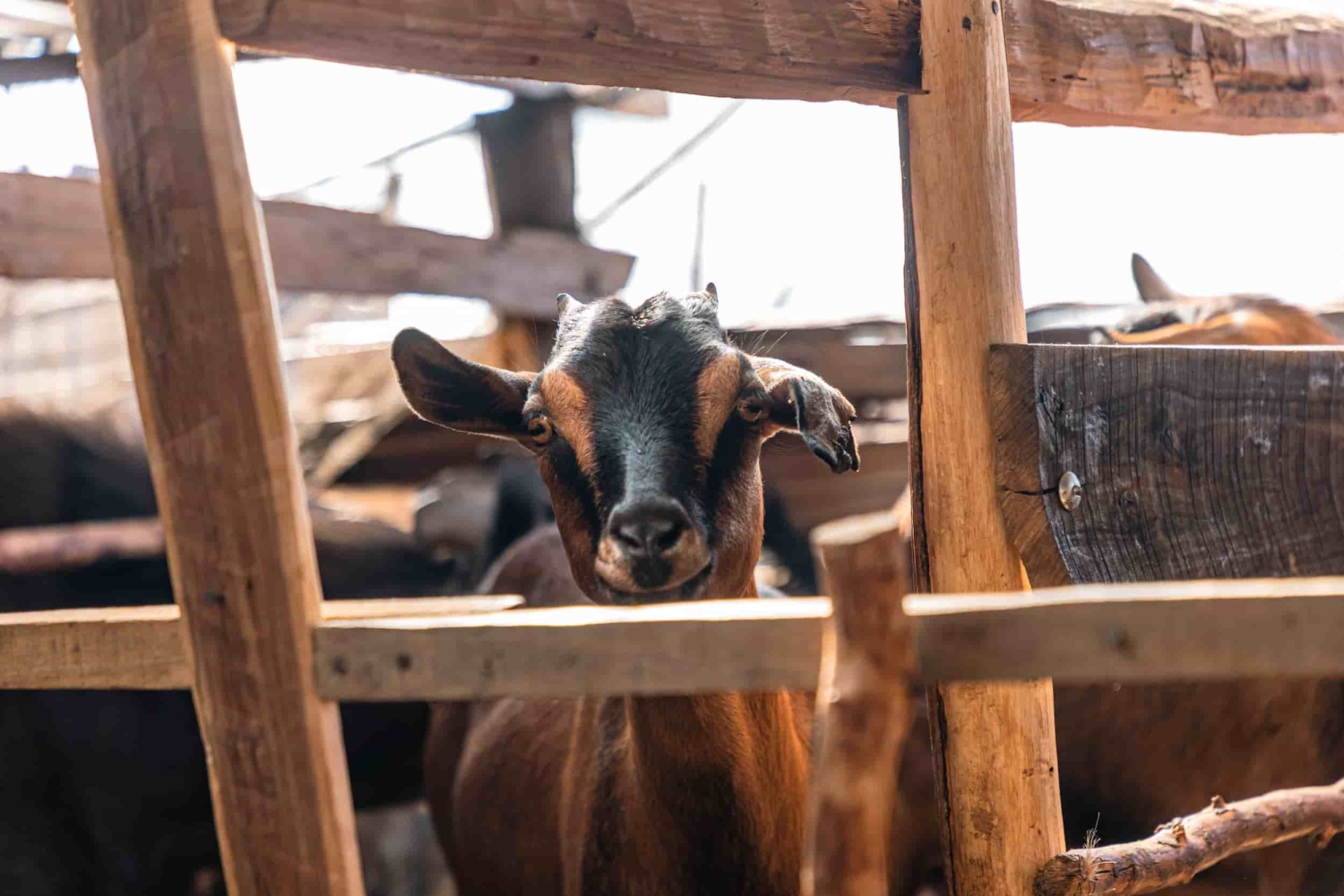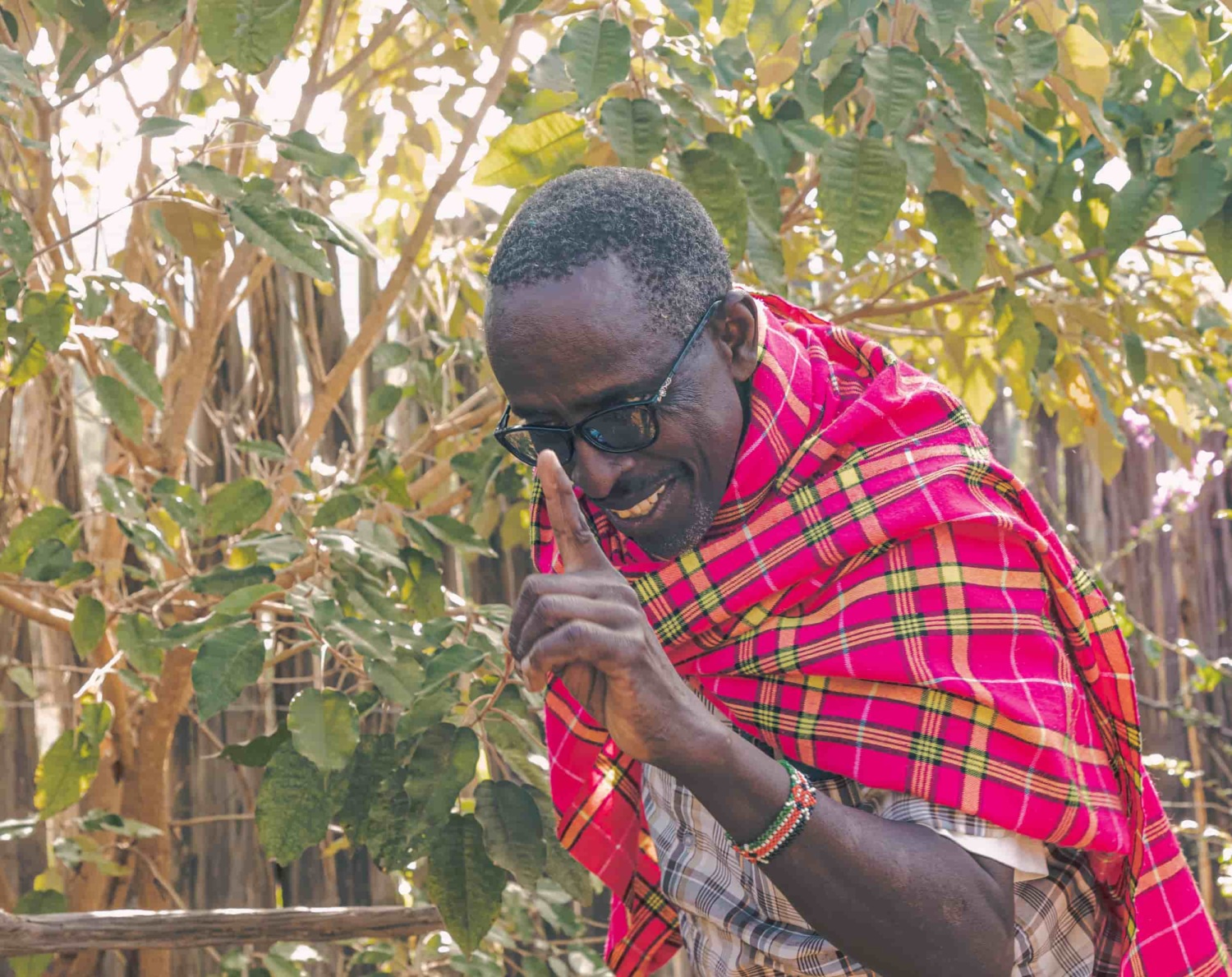Nicolas Kodei is a busy man.
His homestead, perched on a hillside in Kenya’s Laikipia County, includes a large pen of goats, large medicinal trees, gardens, and is surrounded by bee hives that produce large quantities of honey.
The night after we had camped beside a campfire on his verdant homestead, we awaken and are standing around a small fire drinking sweet milky tea and eating boiled eggs from his hens that are clucking nearby.
“Land will help you manage the livestock, and livestock will help you build relationships,” he says with a knowing smile, while he begins to share his work, and explain some of the deeper ecologies of pastoralism.
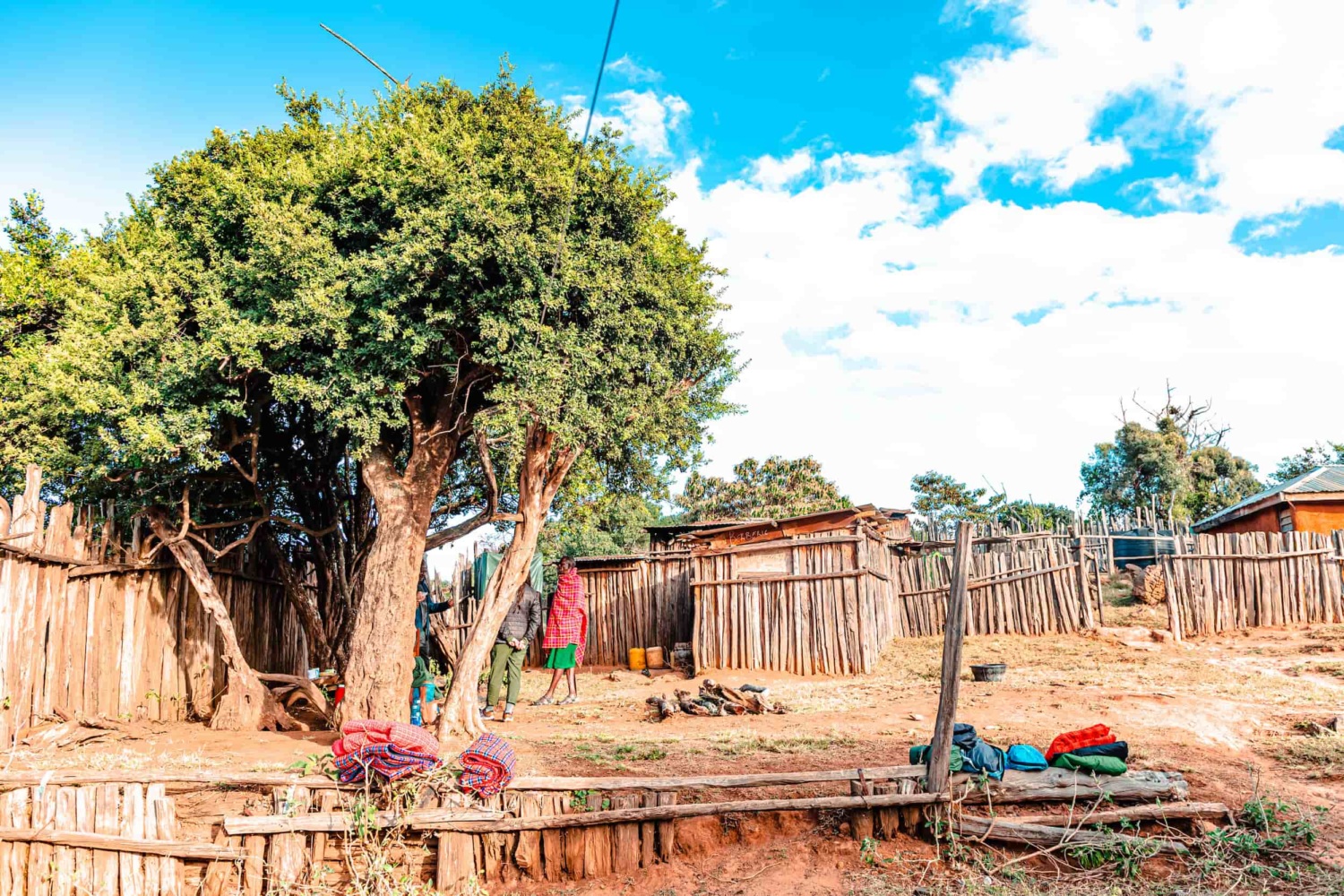
Carrying his fimbo, a traditional Maasai walking stick, Nicolas walks us around his land, and begins pointing out each tree and bush, giving us the name in his Native tongue, in English, and the Latin name; the latter two languages he taught himself.
Pointing his fimbo at a large nearby tree, he explains that it is an Acokanthera schimperi, more commonly known as the poison arrow tree. It’s uses include using the leaves to make medicinal honey to treat malaria.
Nearby stands a croton megalocarpus, another medicinal tree that is also used for bee foraging. Next to it stands a wild olive tree that Nicolas says is good for cleaning your teeth, but is also used in some of their traditional ceremonies.
In 2013 Nicolas started a tree nursery, the purpose of which was to propagate Indigenous species, along with conserving, revitalizing and teaching traditional knowledge that has been eroded over time. The nursery includes a variety of tree species, including orange and passion fruit trees. He is also conducting research to determine if dragon fruit trees could survive in this region.
Nicolas is a grant recipient of Home Planet Fund partner IMPACT’s Kipok Fund for his Collective Farming Initiative wherein he is cultivating food and safeguarding the forest where he lives. The Kipok Fund is a direct financing initiative that enables Indigenous communities to respond to environmental degradation, severe weather events, shocks, and vulnerabilities.
The communities the fund provides support to decide their own priorities, determine who receives funds and how much, both of which ensuring both local ownership and sustainability.
Thus, the fund provides resources to rebuild traditional livelihoods, while fostering community resilience and economic recovery. So far, the fund has supported 48 groups and counting.
Kipok is a Maasai word that means “we shall thrive and flourish.”
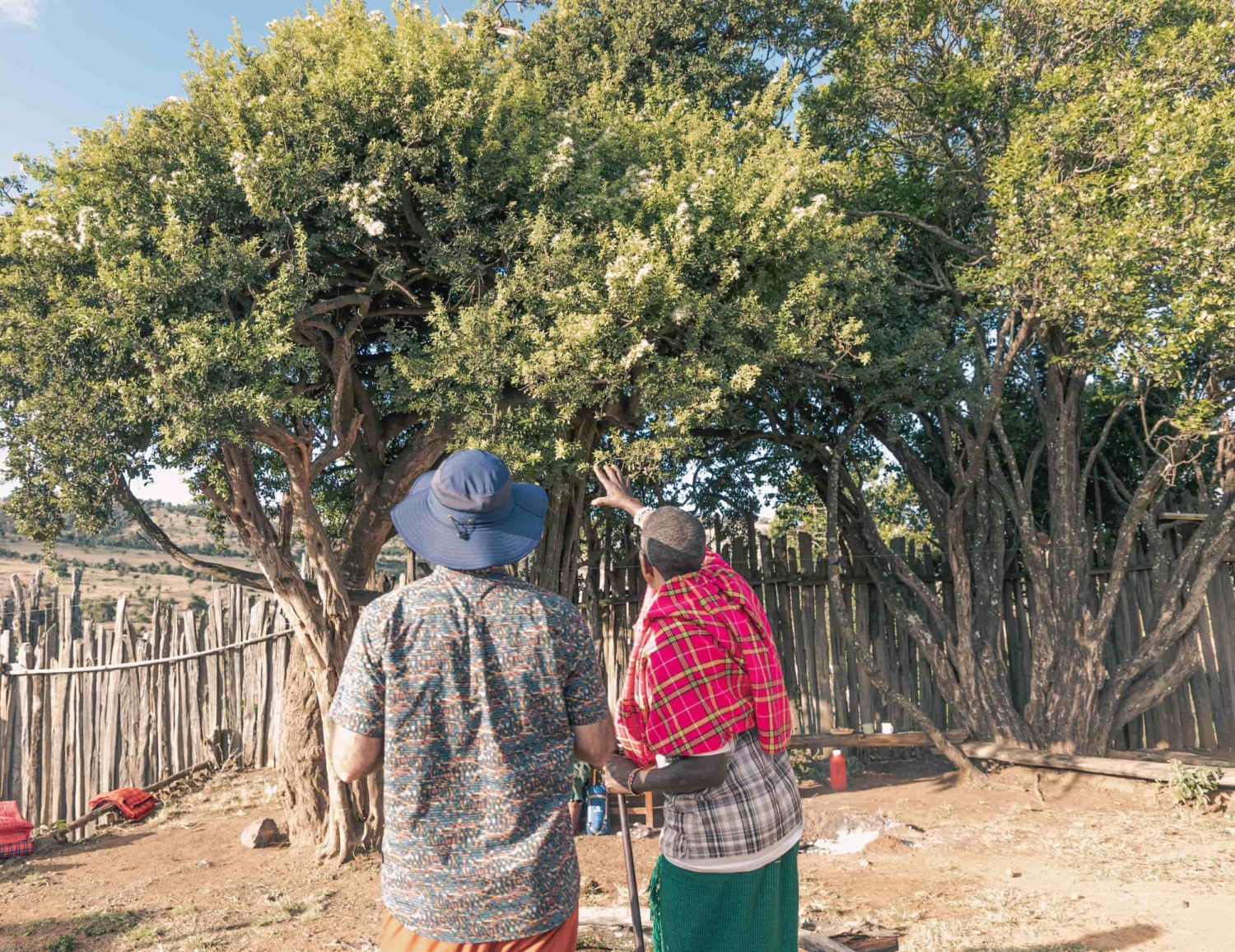
“We must build our own income if we are to live in our old ways,” IMPACT Director Malih Ole Kaunga, who is with us, says. “If we are dependent upon the colonizers way to make income, we cannot live in our own way. This is why we need serious investments into pastoralism if we are to become independent, in order to not need it again.”
While Nicolas led us further along the tour of his homestead and we neared a collection of traditional bee hives, Malih added, “Poverty is used as a weapon. You are slowly digging your own grave, and while doing this they are taking from you.”
Just before the bee hives, Nicolas pointed out several aloe vera plants and explained how they are used as medicine in that they remove stomach worms, and when the stems are placed in a fire, the steam relieves arthritis.
“They are also medicine for chickens, and they heal lamb diarrhea,” Nicolas added with a smile.
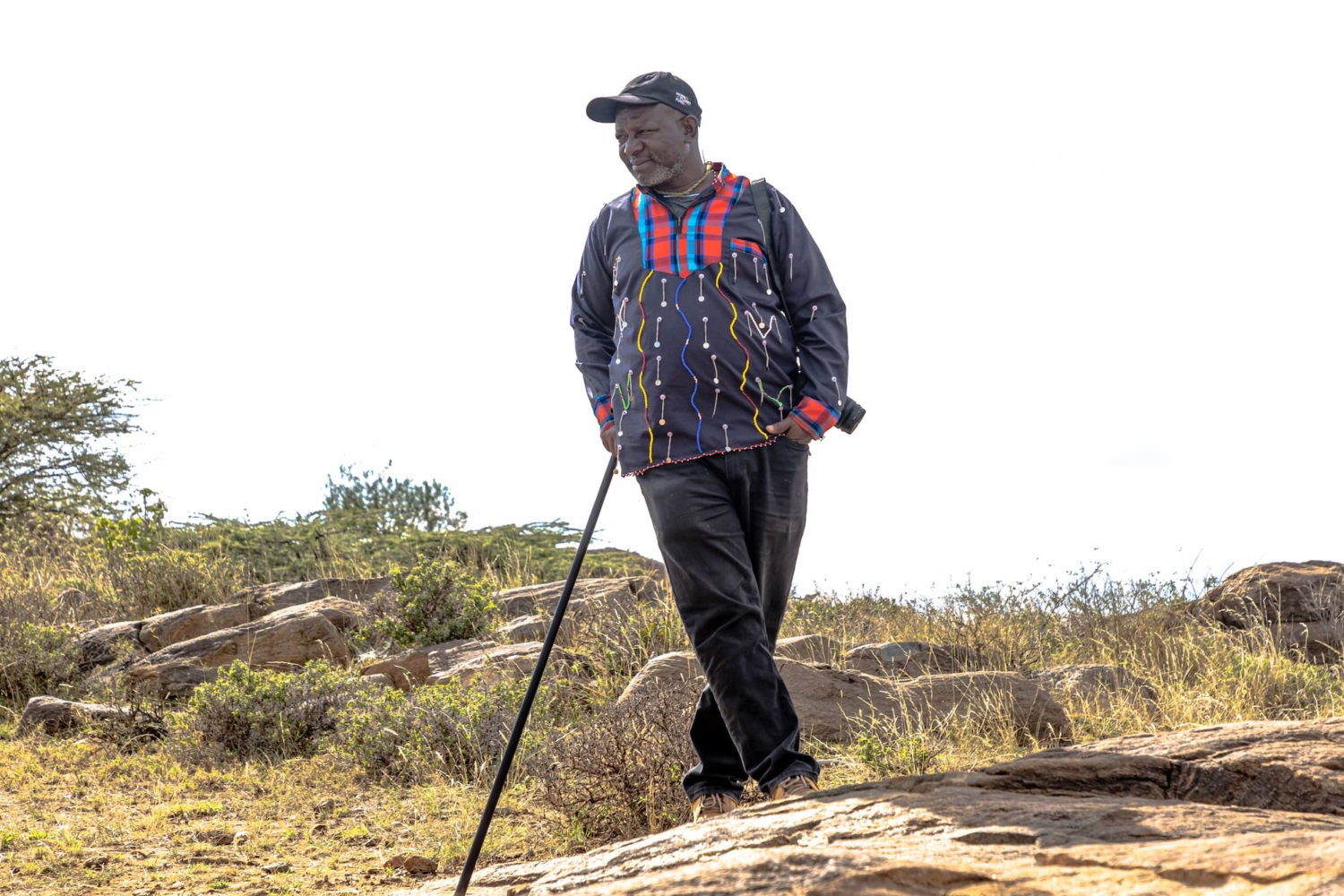
Dozens of bee hives populate a section of the homestead.
Wooden framed models populate one area, while traditional hives that appear as large logs hanging from an older tree are nearby.
Nicolas inherited these from his father.
Each one produces 27 kilos of honey, and they are suspended in mid-air to protect them from the being raided by honey badgers.
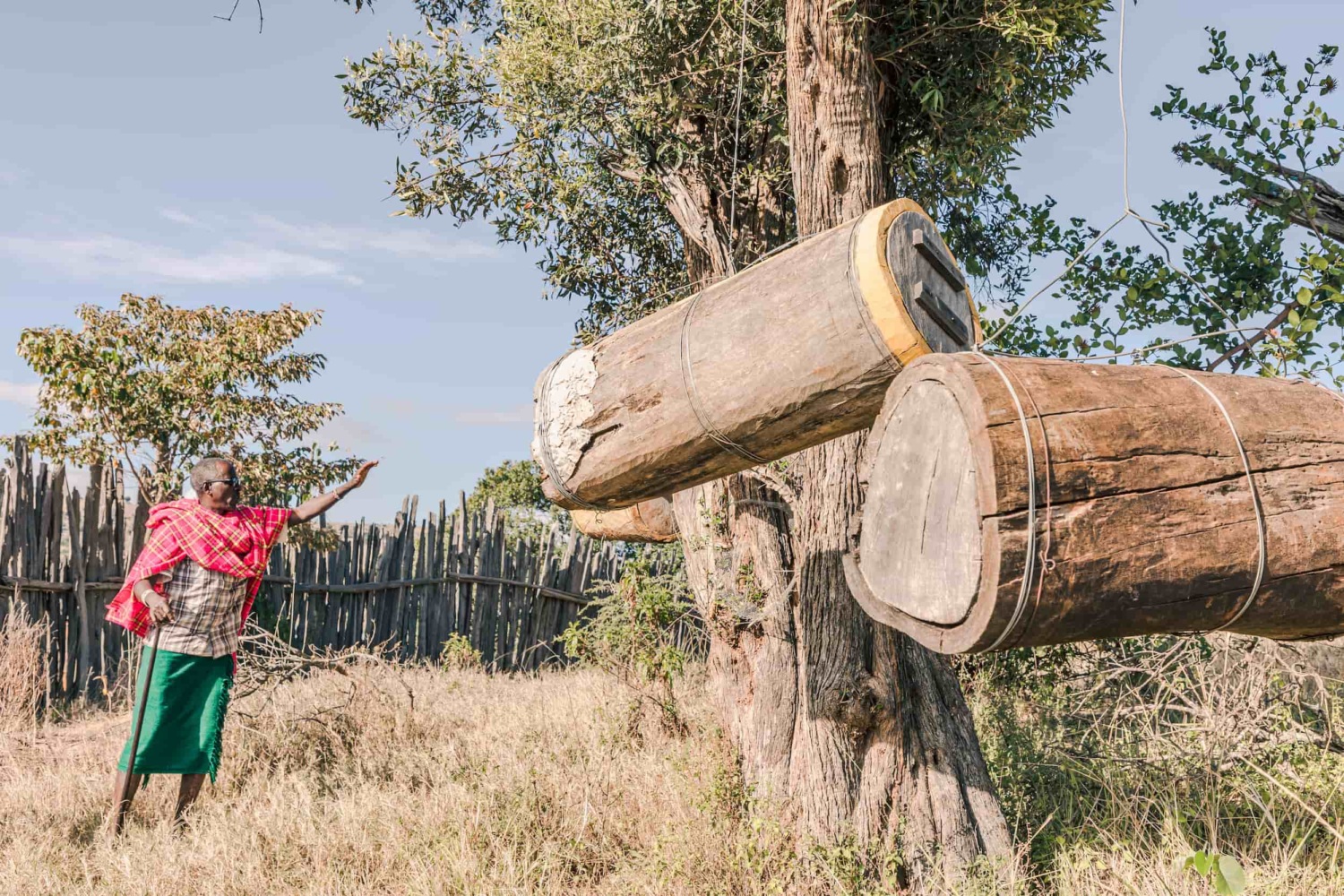
While explaining dozens of services bees provide us, Nicolas also points out that they are great predictors of the rains and explains that another reason all the hives are located where they are is to provide protection from elephants, who have an extreme dislike of bees.
In his region of Kenya, Nicolas is one of IMPACT’s 42 groups involved in beekeeping, one of their 16 groups involved in agroecology (eco-friendly) farming practices, and one of their 10 groups involved in the sustainable pastoralist practice of livestock fattening.
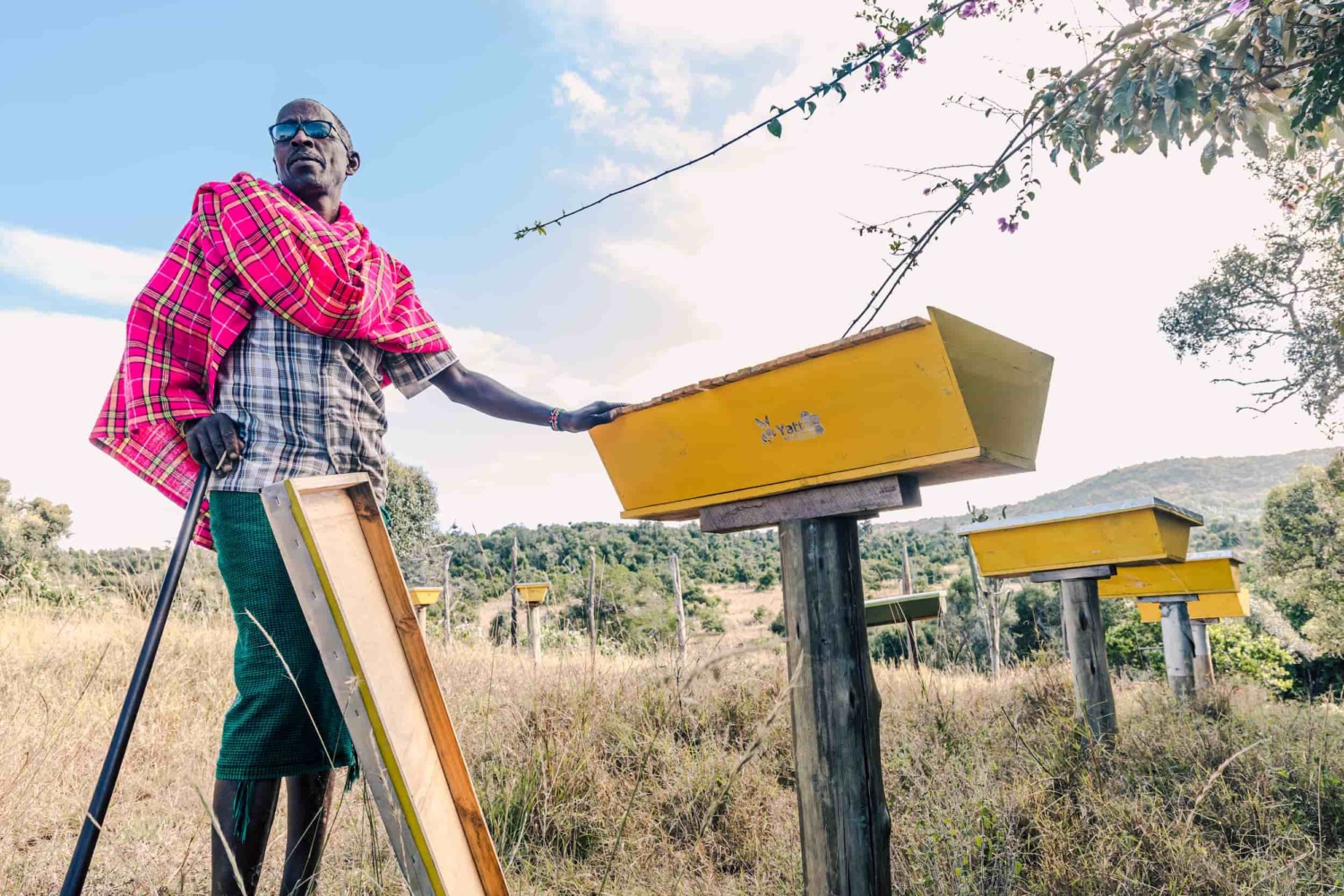
As we work our way to another area of the homestead, Nicolas points out a warburgia ugandensis tree, noting how it is “good for pneumonia, stomach issues, colds, tonsils, deters elephants, is termite proof, and provides nice timber when it grows big.”
Two steps further he notes a rhus natalensis shrub, which produces a fruit that is good for curing babies’ coughs, as well as stomach ailments.
Next we walk into a stand of trees, where Nicolas points out lichens, explaining that you can assess the health of a forest by whether these are disturbed, which these are not.
He encourages each of the 51 households in his community to plant 50 trees annually, and offers a small reward for each one who succeeds in attaining this goal.
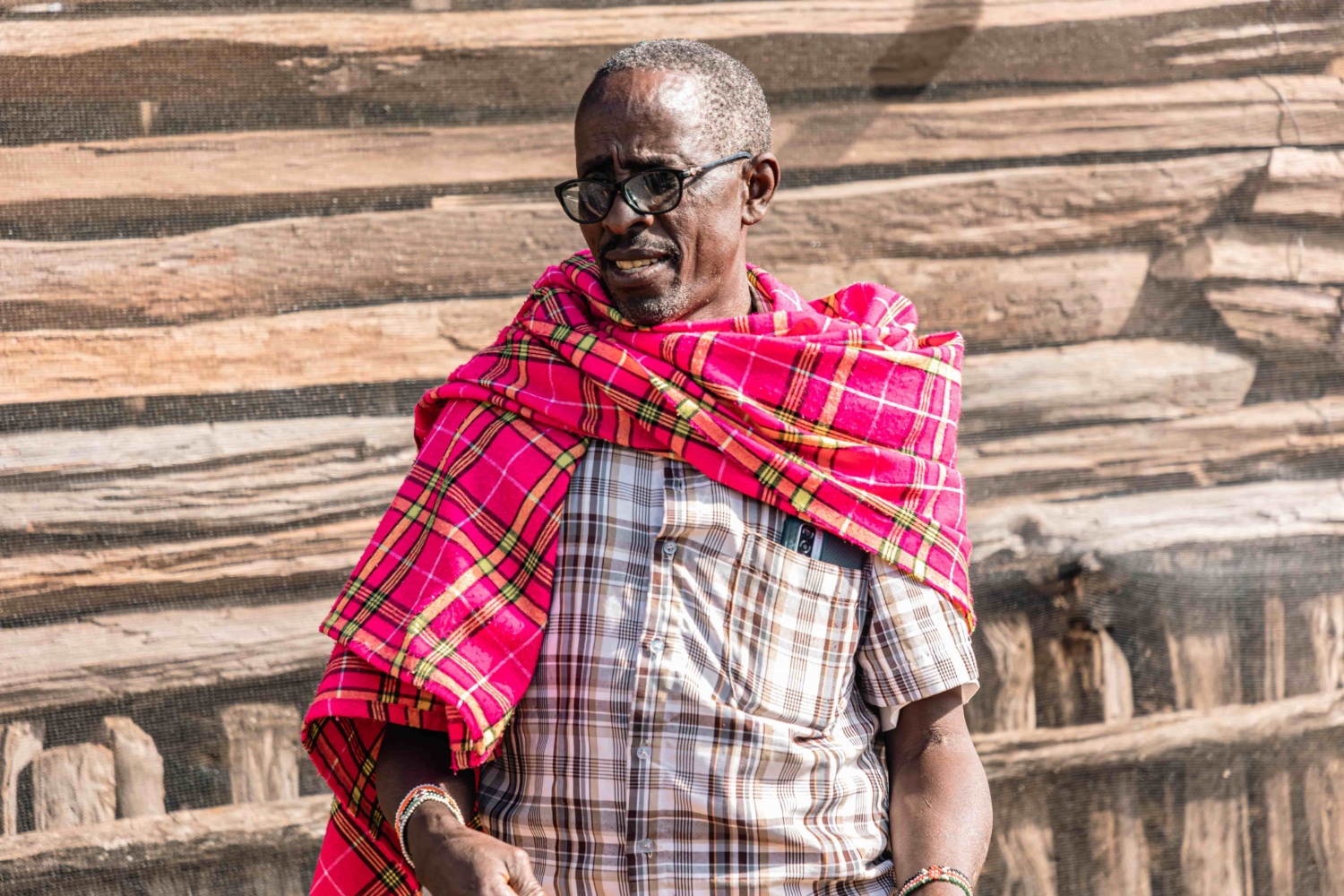
Nicolas is the chair of a water project for his entire community.
“As a leader you have to be on the forefront, so people can imitate what you are doing,” he says while showing the water collection system for his homestead.
After showing us his goat pens, populated with numerous well fed and well cared for goats of various sizes, Nicolas looks out at the horizon to gather his thoughts. His eyes scan the horizon, where some of other homes are located; each of which are living sustainably while regenerating the land.
He then faces us and says, “I want to assist the community with the knowledge I have, so everyone can feed themselves.”
Given that his research is contributing to studies being conducted at universities around the world, Nicolas is not just serving his community, he is serving the planet.
